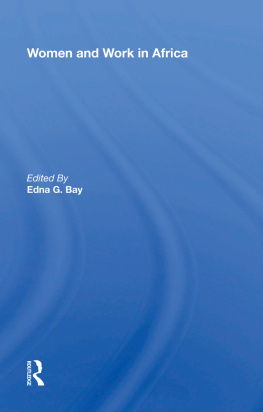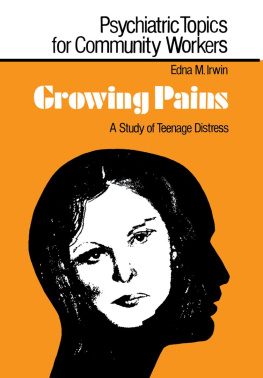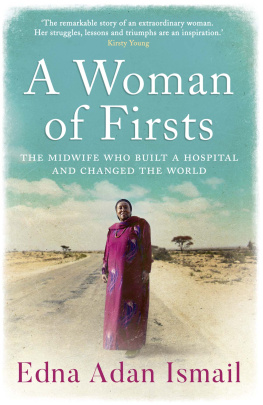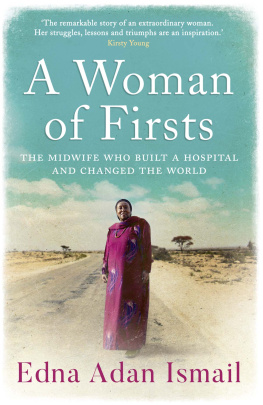Women and Work in Africa
Also of Interest
Scientific-Technological Change and the Role of Women in Development , edited by Pamela M. D'Onofrio-Flores and Sheila M. Pfafflin
Women and Technological Change in Developing Countries , edited by Roslyn Dauber and Melinda L. Cain
* The Women of Rural Asia , Robert Orr Whyte and Pauline Whyte
* The Underside of History: A View of Women Through Time , Elise Boulding
Women in Changing Japan , edited by Joyce Lebra, Joy Paulson, and Elizabeth Powers
* New Space for Women , edited by Gerda R. Wekerle, Rebecca Peterson, and David Morley
* Alternative Futures for Africa , edited by Timothy M. Shaw
* Africa's International Relations: The Diplomacy of Dependency and Change, Ali A. Mazrui
Tanzania: An African Experiment , Rodger Yeager
Senegal , Sheldon Gellar
Migration and the Labor Market in Developing Countries , edited by R. H. Sabot
* From Dependency to Development: Strategies to Overcome Underdevelopment and Inequality , edited by Heraldo Muoz
Planning African Development: The Kenya Experience , edited by Glen Norcliffe and Tom Pinfold
Women and the Social Costs of Economic Development: Two Colorado Case Studies , Elizabeth Moen, Elise Boulding, Jane Lillydahl, and Risa Palm
*Available in hardcover and paperback.
Westview Special Studies on Africa
Women and Work in Africa
edited by Edna G. Bay
The emphasis on economic development in Third World countries has raised questions about how women share in that development and what exactly is the nature of women's contribution to the economic activity of their countries. This book--an outgrowth of the 1979 Annual Spring Symposium of the African Studies program at the University of Illinois at Urbana-Champaign entitled "Women and Work in Africa"--focuses on the livelihood of women in Africa, tracing the decline in female productivity that occurred in many countries as the colonial system disrupted traditional patterns, outlining the continuing economic and ideological handicaps women have faced in the years since independence, and suggesting alternatives available to women in coping with these handicaps. The authors return frequently to the policy implications of their research, and some point to the growing expression by African women of dissatisfaction with oppressive social, political, and economic systems. Assessing current trends, they see the possibility that African women's developing awareness of their plight, combined with outside pressures that affect economic policies, may begin to reverse the processes that have for so long negatively affected the masses of women in Africa.
Dr. Edna G. Bay is assistant director of the Graduate Institute of the Liberal arts at Emory University. She has been assistant professor in African Studies, University of Illinois at Urbana-Champaign; done research on women in Dahomey; and been a participant in and consultant to USAID for several conferences and seminars on women and development. Dr. Bay is coeditor of Women in Africa: Studies in Social and Economic Change (1976) and of a special edition on women of African Studies Review XVII, 3 (1975), among other publications.
First published 1982 by Westview Press
Published 2018 by Routledge
52 Vanderbilt Avenue, New York, NY 10017
2 Park Square, Milton Park, Abingdon, Oxon OX14 4RN
Routledge is an imprint of the Taylor & Francis Group, an informa business
Copyright 1982 by Taylor & Francis
All rights reserved. No part of this book may be reprinted or reproduced or utilised in any form or by any electronic, mechanical, or other means, now known or hereafter invented, including photocopying and recording, or in any information storage or retrieval system, without permission in writing from the publishers.
Notice:
Product or corporate names may be trademarks or registered trademarks, and are used only for identification and explanation without intent to infringe.
Library of Congress Catalogue Card Number: 82-70243
ISBN 13: 978-0-367-21371-8(hbk)
This collection of articles grows out of a symposium on the subject of women and work in Africa held on the Urbana-Champaign campus of the University of Illinois in the spring of 1979. The organizing committee for that program sought first, to update the field of economic studies of women in Africa and second, to provide a forum for the exchange and stimulation of ideas among scholars and professionals concerned for women in Africa. The publication here of the majority of the symposium papers represents a logical final step in the fulfillment of the objectives of the symposium program committee.
As a selection of case studies, the collection does not pretend to cover comprehensively the economic activities of women in all parts of the African continent. Although one article explores women's economic life in an Islamic setting, for example, none deals specifically with women in North Africa. Similarly, no articles treat women's economic roles within the complexity of male migratory labor patterns in the geographical area of contemporary white South African economic domination. Nevertheless, the articles as a whole highlight many broad issues of women's work in Africa and illustrate recent trends and directions in the field of women's studies in Africa. They explore generally women's means of livelihood and how they have been affected by and have reacted to colonial and national government policies. And the papers describe specific patterns of women's social behavior and economic strategy as they attempt to come to terms with contemporary society.
Many individuals and organizations are to be thanked for their support for the symposium and for the publication of these papers. The African Studies Program of the University of Illinois provided the initial impetus by naming a women's topic the subject for its sixth annual symposium. The African Studies Program provided both staff and financial support for the symposium and the publication efforts. Seven additional units on the Illinois campus plus the United States International Communication Agency and the Office of Women in Development, USAID, generously supported the symposium program. The Program Committee members worked for more than a year to prepare the symposium and to plan for the dissemination of its results. Its members included Evelyne Accad, Donald Crummey, Doris Derby, Jean Due, Corinne Glesne, Jane Mohraz, Ehimwema Omo-Osagie, Sabine Orsot-Dessi, Yvette Scheven, Mary Ellen Seaver, Cindy Smith, Elizabeth Stewart, Becky Summary, Marti Thomson, and Barbara Yates. Appreciation needs to be expressed, too, to the Emory University Graduate Institute of the Liberal Arts which supported the camera-ready preparation of this publication. Three individuals were central to that effort: our editor Barbara Reitt, typist June Mann, and proof-reader Julie Sabin.














